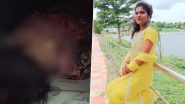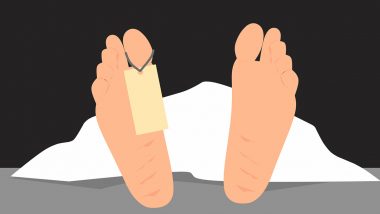Mexico City, Apr 11 (AP) Interns and resident doctors at a public hospital on the outskirts of Mexico's capital say that 26 of them have tested positive for the COVID-19 disease and request personal protective equipment and better training for all of the hospital's staff.
In an open letter to Mexico's health secretary, the doctors and medical students detailed a situation where basic protocols were not followed, a lack of supervision left inexperienced medical staff to fend for themselves and staff had to find and buy their own protective equipment.
The letter's authors were not named, but said they are the doctors and interns now quarantined and suffering from the effects of the new coronavirus.
A lack of resources and training in the face of the pandemic has spurred a number of protests by workers in Mexico's public health system in recent weeks.
President Andrés Manuel López Obrador has conceded that the system does not have the number of doctors and nurses that it needs as the epidemic begins to ramp up. One planeload of medical gear arrived from China this week and a second one was scheduled to arrive Friday night.
Mexico has more than 3,844 confirmed COVID-19 infections and 233 deaths. For most people, the new coronavirus causes mild or moderate symptoms, such as fever and cough that clear up in two to three weeks.
For some, especially older adults and people with existing health problems, it can cause more severe illness, including pneumonia and death.
Zoé Robledo, director of Mexico public health system, said Wednesday that talk of a COVID-19 outbreak at the Tlalnepantla hospital was “incorrect.”
He said an investigation showed three starting points for the outbreak: a patient who has recovered, a doctor who didn't have contact with COVID-19 patients and another doctor who was also working in another health system. He differentiated it from an outbreak at a public hospital in the northern city of Monclova, which an investigation confirmed spread within the hospital.
The doctors and students demanded a public apology from Robledo.
“Denying the presence of outbreaks in hospitals will not lead to managing them,” the doctors and interns wrote.
The public health system's hospital in the northern suburb of Tlalnepantla had been designated as a facility to handle coronavirus patients, but patients displaying those symptoms were supposed to be isolated from other parts of the hospital.
The letter said that did not occur and 19 of the 26 resident doctors in internal medicine tested positive days after a patient displaying coronavirus symptoms was brought to their floor. More such cases followed and the medical staff there had not been given protective equipment.
In late March, so many of the hospital's more experienced doctors were staying home and so many residents were showing symptoms and not working that the residents and interns were left practically alone with one or two residents for 85 patients, the letter said.
When Mexico's health undersecretary Hugo López-Gatell was asked about the hospital Thursday night, he spoke only generally about more protective equipment being distributed in the public health system, but did not address what happened at the hospital.
The doctors said the hospital's epidemiology unit did not move to test them until March 30 and even then made the residents take samples from each other without protective equipment.
Those whose symptoms were not bad enough yet continued working, and several of those later tested positive, the letter said.
Similar complaints have emerged at other public hospitals around Mexico, spurring protests at some demanding that staff receive the necessary protective gear and training to work through the epidemic.
A hospital in the northern steel town of Monclova was the site of another outbreak and a protest by staff that complained they were being put at risk by the public health system. Three members of that staff have died from COVID-19 related illness and nearly 30 have been infected.
All of this comes amid an increase in attacks against health care workers by some members of the public, who fear they spread contagion.
Mexico's National Commission on Preventing Discrimination said Friday that complaints of attacks or discrimination against medical personnel had doubled between April 6 and April 9. The most common incidents reported were buses, taxis or other means of transport refusing to pick up health care workers, or verbal or physical attacks.
Mexico City authorities said they were stepping up security at local hospitals after relatives of a patient allegedly assaulted a doctor and another health care worker at one hospital.(AP)
(This is an unedited and auto-generated story from Syndicated News feed, LatestLY Staff may not have modified or edited the content body)













 Quickly
Quickly





















